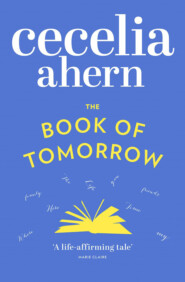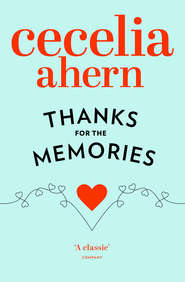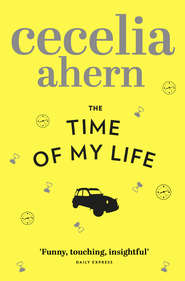По всем вопросам обращайтесь на: info@litportal.ru
(©) 2003-2025.
✖
The Marble Collector: The life-affirming, gripping and emotional bestseller about a father’s secrets
Автор
Год написания книги
2018
Настройки чтения
Размер шрифта
Высота строк
Поля
Chapter 23: Playing with Marbles (#litres_trial_promo)
Chapter 24: Pool Rules (#litres_trial_promo)
Chapter 25: Playing with Marbles (#litres_trial_promo)
Chapter 26: Pool Rules (#litres_trial_promo)
Chapter 27: Playing with Marbles (#litres_trial_promo)
Chapter 28: Pool Rules (#litres_trial_promo)
Chapter 29: Playing with Marbles (#litres_trial_promo)
Chapter 30: Pool Rules (#litres_trial_promo)
Chapter 31: Playing with Marbles (#litres_trial_promo)
Chapter 32: Pool Rules (#litres_trial_promo)
Chapter 33: Playing with Marbles (#litres_trial_promo)
Epilogue (#litres_trial_promo)
Acknowledgements (#litres_trial_promo)
Keep Reading … (#litres_trial_promo)
Reading Group Questions (#litres_trial_promo)
Q&A with Celia (#litres_trial_promo)
About the Author (#litres_trial_promo)
Also by Cecelia Ahern (#litres_trial_promo)
About the Publisher (#litres_trial_promo)
(#u4fe0091b-fb11-5499-b18f-4f8de357c73b)
(#u4fe0091b-fb11-5499-b18f-4f8de357c73b)
When it comes to my memory there are three categories: things I want to forget, things I can’t forget, and things I forgot I’d forgotten until I remember them.
My earliest memory is of my mum when I was three years old. We are in the kitchen, she picks up the teapot and launches it up at the ceiling. She holds it with two hands, one on the handle, one on the spout, and lobs it as though in a sheaf-toss competition, sending it up in the air where it cracks against the ceiling, and then falls straight back down to the table where it shatters into pieces, murky brown water and burst soggy teabags everywhere. I don’t know what preceded this act, or what came after, but I do know it was anger-motivated, and the anger was my-dad-motivated. This memory is not a good representation of my mum’s character; it doesn’t show her in a good light. To my knowledge she never behaved like that again, which I imagine is precisely the reason that I remember it.
As a six-year-old, I see my Aunt Anna being stopped at the door by Switzer’s security as we exit. The hairy-handed security guard goes through her shopping bag and retrieves a scarf with its price tags and a security tag still on it. I can’t remember what happened after that; Aunt Anna plied me with ice-cream sundaes in the Ilac Centre and watched with hope that every memory of the incident would die with each mouthful of sugar. The memory is vivid despite even to this day everyone believing I made it up.
I currently go to a dentist who I grew up with. We were never friends but we hung out in the same circles. He’s now a very serious man, a sensible man, a stern man. When he hovers above my open mouth, I see him as a fifteen-year-old pissing against the living room walls at a house party, shouting about Jesus being the original anarchist.
When I see my aged primary school teacher who was so softly spoken we almost couldn’t hear her, I see her throwing a banana at the class clown and shouting at him to leave me alone for God’s sake, just leave me alone, before bursting into tears and running from the classroom. I bumped into an old classmate recently and brought the incident up, but she didn’t remember.
It seems to me that when summoning up a person in my mind it is not the everyday person I think of, it is the more dramatic moments or the moments they showed a part of themselves that is usually hidden.
My mother says that I have a knack for remembering what others forget. Sometimes it’s a curse; nobody likes it when there’s somebody to remember what they’ve tried so hard to bury. I’m like the person who remembers everything after a drunken night out, who everyone wishes would keep their memories to themself.
I can only assume I remember these episodes because I have never behaved this way myself. I can’t think of a moment when I have broken form, become another version of myself that I want and need to forget. I am always the same. If you’ve met me you know me, there’s not much more to me. I follow the rules of who I know myself to be and can’t seem to be anything else, not even in moments of great stress when surely a meltdown would be acceptable. I think this is why I admire it so much in others and I remember what they choose to forget.
Out of character? No. I fully believe that even a sudden change in a person’s behaviour is within the confines of their nature. That part of us is present the whole time, lying dormant, just waiting for its moment to be revealed. Including me.
(#u4fe0091b-fb11-5499-b18f-4f8de357c73b)
(#u4fe0091b-fb11-5499-b18f-4f8de357c73b)
‘Fergus Boggs!’
These are the only two words I can understand through Father Murphy’s rage-filled rant at me, and that’s because those words are my name, the rest of what he says is in Irish. I’m five years old and I’ve been in the country for one month. I moved from Scotland with Mammy and my brothers, after Daddy died. It all happened so quickly, Daddy dying, us moving, and even though I’d been to Ireland before, on holidays during the summer to see Grandma, Granddad, Uncle, Aunty and all my cousins, it’s not the same now. I’ve never been here when it’s not the summer. It feels like a different place. It has rained every day we’ve been here. The ice-cream shop isn’t even open now, all boarded up like it never even existed, like I made it up in my head. The beach that we used to go to most days doesn’t look like the same place and the chip van is gone. The people look different too. They’re all wrapped up and dark.
Father Murphy stands over my desk and is tall and grey and wide. He spits as he shouts at me; I feel the spit land on my cheek but I’m afraid to wipe it away in case that makes him angrier. I try looking around at the other boys to see their reactions but he lashes out at me. A backhanded slap. It hurts. He is wearing a ring, a big one; I think it has cut my face but I daren’t reach up to feel it in case he hits me again. I need to go to the toilet all of a sudden. I have been hit before, but never by a priest.
He is shouting angry Irish words. He is angry that I don’t understand. In between the Irish words he says I should understand him by now but I just can’t. I don’t get to practise at home. Mammy is sad and I don’t like to bother her. She likes to sit and cuddle. I like when she does that. I don’t want to ruin the cuddles by talking. And anyway I don’t think she remembers the Irish words either. She moved away from Ireland a long time ago to be a nanny to a family in Scotland and she met Daddy. They never spoke the Irish words there.
The priest wants me to repeat the words after him but I can barely breathe. I can barely get the words out of my mouth.
‘Tá mé, tá tú, tá sé, tá sí …’
LOUDER!
‘Tá muid, tá sibh, tá siad.’
When he’s not shouting at me, the room is so quiet it reminds me it’s filled with boys my age, all listening. As I stammer through the words he is telling everybody how stupid I am. My whole body is shaking. I feel sick. I need to go to the toilet. I tell him so. His face goes a purple colour and that is when the leather strap comes out. He lashes my hand with leather, which I later learn has pennies sewn into the layers. He tells me he is going to give me ‘six of the best’ on each hand. I can’t take the pain. I need to go to the toilet. I go right there and then. I expect the boys to laugh but nobody does. They keep their heads down. Maybe they’ll laugh later, or maybe they’ll understand. Maybe they’re just happy it’s not happening to them. I’m embarrassed, and ashamed, as he tells me I should be. Then he pulls me out of the room, by my ear, and that hurts too, away from everyone, down the corridor, and he pushes me into a dark room. The door bangs closed behind me and he leaves me alone.
I don’t like the dark, I have never liked the dark, and I start to cry. My pants are wet, my wee has run down into my socks and shoes but I don’t know what to do. Mammy usually changes them for me. What do I do here? There is no window in the room and I can’t see anything. I hope he won’t keep me in here long. My eyes adjust to the darkness and the light that comes from under the door helps me to see. I’m in a storage room. I see a ladder, and a bucket and a mop with no stick, just the head. It smells rank. An old bicycle is hanging upside down, the chain missing. There’s two wellington boots but they don’t match and they’re both for the same foot. Nothing in here fits together. I don’t know why he put me in here and I don’t know how long it’ll be. Will Mammy be looking for me?
It feels like forever has passed. I close my eyes and sing to myself. The songs that Mammy sings with me. I don’t sing them too loud in case he hears me and thinks I’m having fun in here. That would make him angrier. In this place, fun and laughing makes them angry. We are not here to be leaders, we are here to serve. This is not what my daddy taught me, he said that I was a natural leader, that I can be anything I want to be. I used to go hunting with him, he taught me everything, he even let me walk first, he said I was the leader. He sang a song about it. ‘Following the leader, the leader, the leader, Fergus is the leader, da da da da da.’ I hum it to myself but I don’t say the words. The priest won’t like me saying I’m the leader. In this place we’re not allowed to be anybody we want to be, we have to be who they tell us to be. I sing the songs my daddy used to sing when I was allowed to stay up late and listen to the sing-songs. Daddy had a soft voice for a strong man, and he sometimes cried when he sang. My daddy never said crying was only for babies, not like the priest said, crying is for people who are sad. I sing it to myself now and try not to cry.
Suddenly the door opens and I move away, afraid that it will be him again, with that leather strap. It’s not him but it’s the younger one, the one who teaches the music class with the kind eyes. He closes the door behind him and crouches down.
‘Hi, Fergus.’
I try to say hi but nothing comes out of my mouth.
‘I brought you something. A box of bloodies.’
I flinch and he puts a hand out. ‘Don’t look so scared now, they’re marbles. Have you ever played with marbles?’
I shake my head. He opens his hand and I see them shining in his palm like treasures, four red rubies.
‘I used to love these as a boy,’ he says quietly. ‘My granddad gave them to me. “A box of bloodies,” he said, “just for you.” I don’t have the box now. Wish I had, could be worth something. Always remember to keep the packaging, Fergus, that’s one bit of advice I’ll give you. But I’ve kept the marbles.’











